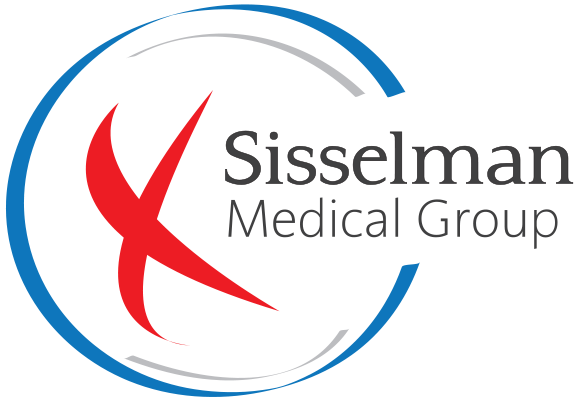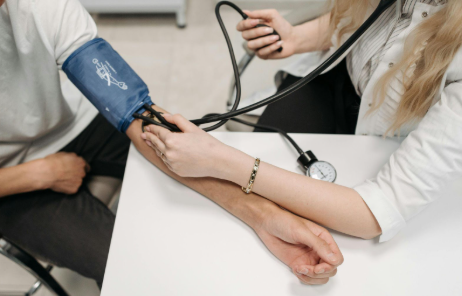Spring into Wellness: Essential Health Screenings to Schedule This Season
Spring into Wellness: Essential Health Screenings to Schedule This Season

Spring is the season of renewal, making it the perfect time to prioritize your health. As the days grow longer and the temperatures rise, it's a great opportunity to assess your well-being and make sure you're on track for a healthy year ahead. Scheduling regular health screenings is one of the best ways to detect potential issues early and take preventive steps to maintain overall wellness.
Whether you're overdue for a check-up or just looking to stay ahead of potential health concerns, spring is the ideal time to make those appointments.
Annual Wellness Exams: Your Health Check-In
A routine wellness exam is one of the most important screenings you can schedule. These annual check-ups serve as a baseline for your overall health, allowing your doctor to track any changes from year to year. During the exam, your healthcare provider will check your weight, blood pressure, heart rate, and other key health markers. They may also review your medical history, discuss any new symptoms, and recommend additional screenings based on your age, family history, and lifestyle.
Beyond the physical evaluation, wellness exams are a great time to ask questions and discuss any concerns you may have. Whether you're experiencing changes in energy levels, sleep patterns, or digestion, your doctor can help you navigate these shifts and determine if further tests are necessary.
Keeping Your Heart Strong
Heart health should be a priority for everyone, regardless of age. Cardiovascular disease remains one of the leading causes of illness, but early detection can make a significant difference. Spring is an excellent time to schedule screenings that assess your heart health, including cholesterol checks and blood pressure monitoring.
High cholesterol and high blood pressure often show no symptoms, making regular screenings that much more important. A simple blood test can measure your cholesterol levels, helping you understand your risk for heart disease. Similarly, a quick blood pressure check can reveal whether your levels are within a healthy range. If necessary, your doctor can guide you on lifestyle changes or medications to keep your heart in optimal condition.
For those with a family history of heart disease, additional screenings like an electrocardiogram (EKG) or stress test may be recommended. These tests provide a deeper look into your heart’s function and can help identify potential concerns before they become serious.
Monitoring Blood Sugar Levels with Diabetes Screening
Diabetes is another condition that can develop silently, with symptoms often going unnoticed until complications arise. If you haven't had your blood sugar checked recently, spring is a great time to schedule a screening. A fasting blood sugar test or an A1C test can help determine if you are at risk for diabetes or prediabetes.
If your results indicate elevated blood sugar levels, your doctor can provide guidance on dietary changes, exercise routines, and potential treatment options. Early intervention is key in managing diabetes and preventing long-term complications like nerve damage, kidney disease, and cardiovascular issues.
Staying Proactive by Screening for Cancer
Cancer screenings are a crucial part of preventive healthcare. Detecting cancer early increases the chances of successful treatment and recovery. Depending on your age and risk factors, your doctor may recommend specific screenings this season.
For women, a mammogram is essential for detecting breast cancer, especially for those over 40 or with a family history. A Pap smear can help identify cervical cancer in its earliest stages, while HPV testing provides additional insights into risk factors.
For men, a
prostate exam may be recommended, particularly for those over 50 or with a family history of prostate cancer. A PSA blood test can help detect abnormalities that may require further evaluation.
Colon cancer screenings, including colonoscopies, are also important for both men and women. While they are typically recommended starting at age 45, those with a family history or other risk factors may need to begin sooner. With new advancements in screening methods, there are now less invasive options available, such as stool-based tests that can be done at home.
Seeing and Hearing Clearly
Spring is a wonderful time to check in on your vision and hearing. Eye exams are essential for detecting changes in vision, monitoring eye health, and identifying conditions like glaucoma, cataracts, and macular degeneration. Even if you don’t currently wear glasses or contacts, regular eye exams can catch problems early.
Similarly, a hearing test can help determine if you have any hearing loss or underlying issues affecting your auditory health. Many people experience gradual hearing loss without realizing it, so a screening can help identify concerns before they become more pronounced.
Protecting Against Skin Cancer
With sunnier days ahead, now is the perfect time for a skin cancer screening. Skin cancer is one of the most common types of cancer, it is highly treatable when caught early. A dermatologist can examine any moles, freckles, or spots that may have changed in size, shape, or color.
If you spend a lot of time outdoors, work in direct sunlight, or have a history of sunburns, regular skin screenings are especially important. Your doctor can also provide tips on sun protection and recommend the best sunscreens to keep your skin healthy throughout the warmer months.
Ready to schedule your next health screening? Our team at
Sisselman Medical Group is ready to help! As the season of renewal unfolds,
reach out to us and embrace the opportunity to refresh not only your surroundings, but also your commitment to self-care!











